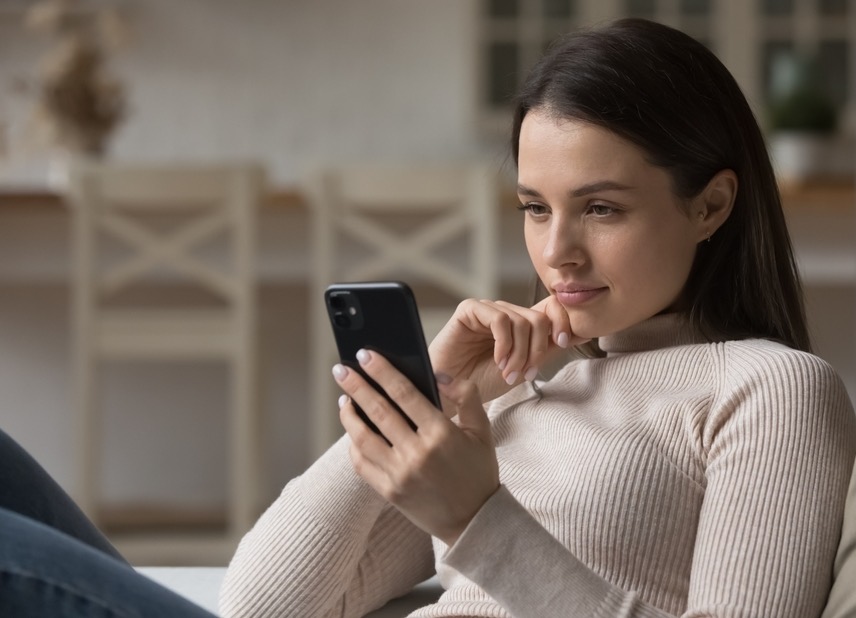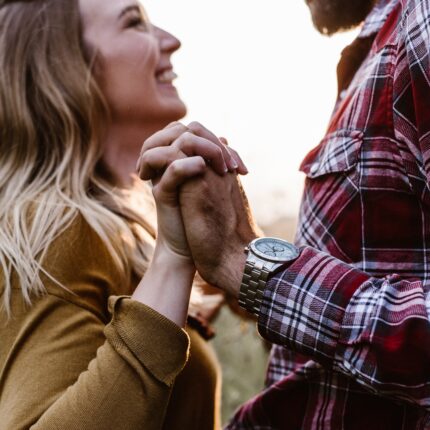
Is the partner you want the partner you really need?
When we’re looking for someone to love, it’s only natural to go dating with a picture in our minds of the person we want to be with, but what if this picture is sabotaging our chances of meeting the partner who’s right for us?
In my dating days, I had a habit of dismissing or disregarding people based on qualities that seemed vitally important at the time, but that I now see didn’t really matter. I judged potential boyfriends on everything from the way they dressed to how they spoke to what college or university they attended to which neighbourhood they’d chosen to live in.
Of course, it’s normal to have preferences and to want to be with someone we find attractive and who broadly fits into our life, but I took this to extremes. As a graduate of one of Britain’s top universities, I was obsessed with meeting someone who’d studied at a similar level. As a high-flying journalist at the time I was dating, I was keen to meet someone who worked in a similar, adrenaline-fuelled profession and who’d had experience, like me, of living all over the world. Ideally, he would speak a few foreign languages too.
Then there was the important question of whether he’d fit into my social circles. It wasn’t just about whether my friends would like him, it was whether he was one of us, like us, on a par with us, acceptable to us.
Appearance was important too, from things like height and weight to whether his teeth were straight – because if he was the wrong height or overweight or his teeth weren’t straight, I thought it would reflect badly on me.
 I see now that my rigid requirements had a lot to do with my own sense of not feeling good enough. Deep down, I didn’t feel acceptable or lovable as I was and I needed my boyfriend to impress people on my behalf so that I could bask in the reflected glory.
I see now that my rigid requirements had a lot to do with my own sense of not feeling good enough. Deep down, I didn’t feel acceptable or lovable as I was and I needed my boyfriend to impress people on my behalf so that I could bask in the reflected glory.
If he was shorter than me, people would judge me as less attractive by association, I reasoned. If he’d studied at a college rather than a university, people would think I was less intelligent, I believed. My low self-esteem couldn’t cope with that.
The other role my tick list played was to sabotage all my relationships. This delighted my subconscious because deep down, I was terrified of falling in love with someone. I was terrified of loving and losing, of being hurt, rejected or abandoned, of feeling suffocated or trapped, of making the wrong choice and of many other scary outcomes.
If I kept finding fault with dates and partners – judging them and pushing them away – I would never have to risk my tender heart. I would never have to experience the pain I felt as a child when my parents struggled to connect with me emotionally or when my dad left the family home.
I wonder if you can relate to my story.
If so, you are not alone and there’s good news: we can overcome these issues so that we can date with an open heart rather than a closed one and with healthy boundaries rather than high walls.
We do this by building our sense of self-esteem and self-worth so that we feel good enough and lovable in our own right. When we love ourselves and feel enough, we won’t need a partner with perfect looks, a perfect career, an ideal background or a stellar education to shore up our shaky confidence.
We explore our self-esteem wounds, process our pain and heal those wounds, by speaking with supportive friends or professionals and by asking God to heal them in partnership with us.
Next, we understand the roots of our fears about falling in love. When did we get hurt in relationships in the past? Are we frightened of getting hurt again? Can we heal those early hurts so that we can separate the past from the present and go dating unhampered by fears and anxieties that have no place in our life today.
If we can face the fears that lie deep in our subconscious, we won’t judge or dismiss or disregard or push away people who’d make good partners and who want to love us.
Once we’ve built our self-esteem and are ready to face our fears, we can throw away our specific list and replace it with a broad-brush vision.
We can still have our natural preferences but we’ll become open to surprises, to the unexpected. We’ll experiment with dating people we wouldn’t normally date. We’ll give people we’d usually dismiss a fair chance.
We’ll allow our healed hearts to lead us to the person we are meant to love, rather than listening to our analytic, controlling heads, which are desperate to keep us safe from hurt.
We’ll loosen our hold on our wants to allow God to bring us the person we need.
This is what I did and I am now married to a wonderful man – a man who bears little resemblance to the partner I imagined I’d be with when I was dating with low self-esteem and with deep, subconscious fears about love.
He is not the person I thought I wanted, but he is absolutely the person I needed and need.
I wish the same for you.
Enjoyed reading ‘Is the partner you want the partner you really need’? Read more by dating and relationships coach Katherine Baldwin here.

